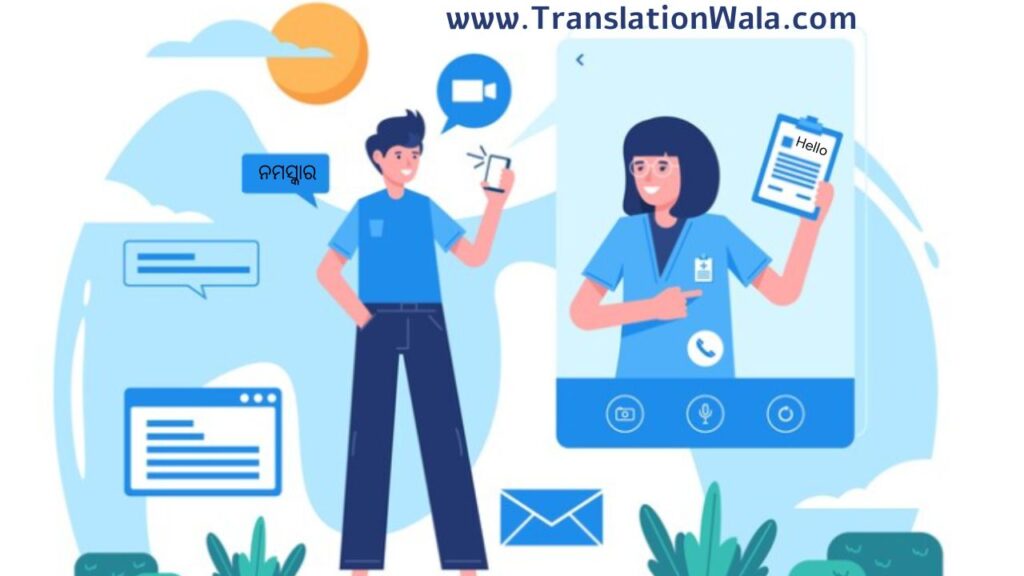English to Odia Translation for Medical: Effective communication is critical in the healthcare industry for maintaining patient safety and providing best treatment. This is especially important in multilingual situations, where language limitations may make interpreting medical information and making informed choices difficult. Access to reliable and culturally appropriate medical translations is critical for residents of Odisha, India, where Odia is the predominant language.
The Need for Accurate Medical Translations
Medical records include a lot of different kinds of information, such as medical backgrounds, evaluations, treatment plans, and directions for taking medications. Misunderstandings, wrong readings, and even bad health effects can happen because of bad translations. Translation of medical papers needs a lot of skill and attention to detail because of this.
Challenges in Translating Medical Terminology
Medical terms are often very specific and technical, which makes it hard to explain correctly if you don’t fully understand medical ideas. Also, medical papers might use language, acronyms, and symbols that are hard to translate.
Cultural Considerations in Medical Translations
Another important part of medical languages is being sensitive to different cultures. Different countries may have different medical practices and ideas. To make sure that patients can fully understand the information given, medical papers should use English that takes these differences into account.
English to Odia Translation Services
Medical papers can be translated correctly and with cultural awareness by professional English to Odia translation services. The interpreters that these businesses hire know both medical terms and the Odia language and culture.
Benefits of Professional Translation Services
Hiring a skilled translation service to translate medical records into Odia has a number of advantages, including:
- Accuracy: Medical documents are translated by professionals who make sure that the information they provide is correct and matches what was written in the original document.
- Cultural Sensitivity: Translators who know about different cultures can change the language and the situation so that the paper is proper for the audience it is meant for.
- Expertise in Medical Terminology: Medically trained translators can correctly explain complicated medical terms and ideas.
- Compliance with Regulations: Professional translation services follow the rules and standards of their field, which makes sure that the texts are accurate and of high quality.
Also Read: English to Odia Translation for Business

Applications of English to Odia Translation
Medical texts from English to Odia are used in a number of hospital situations, such as:
- Hospitals and clinics: translating medical records, release orders, and details about medications for patients.
- Pharmaceutical companies: Drug labels, patient information handouts, and papers for clinical trials are being translated.
- Government agencies: translating data about public health, training tools, and rules and regulations.
- Medical research institutions: Research studies, clinical study procedures, and written permission forms are being translated.
Case Studies of Successful English to Odia Translation
There are many cases that show how accurate English can make Odia medical translations:
- Improved patient understanding: People who spoke Odia in a study were better able to understand their conditions, treatment plans, and drug directions when they got translated medical papers.
- Enhanced patient satisfaction: Customers who spoke Odia were happier with their treatment when they were given translation medical information.
- Reduced healthcare costs: Correct readings can help stop wrong diagnoses, drug mistakes, and needless trips back to the hospital, which saves money for the healthcare system.
Conclusion
For people who understand Odia, translating medical papers from English to Odia is an important way to get great healthcare without having to deal with language obstacles. Healthcare professionals can make sure that patients get correct and culturally sensitive medical information by using professional translation services. This empowers patients to make health and well-being decisions that are in their best interests.
